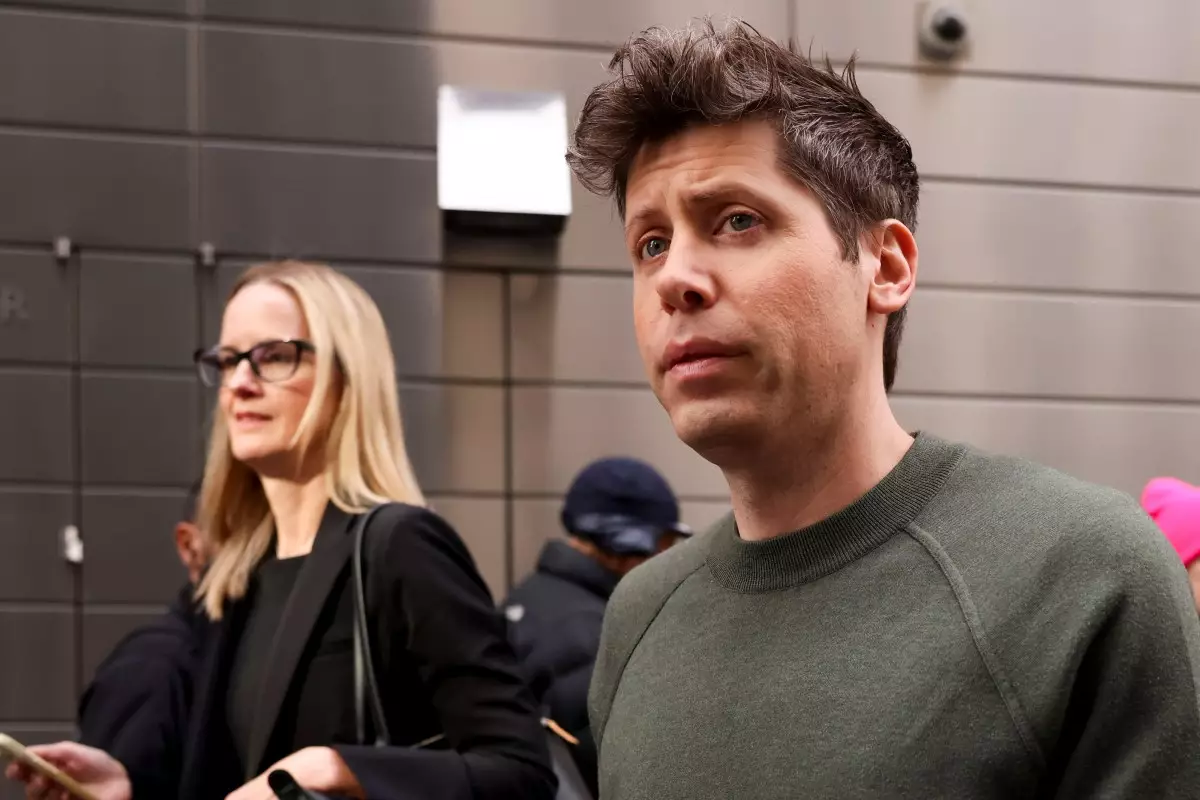In a groundbreaking move that has ignited passionate debate across the technological landscape, OpenAI—a trailblazer in artificial intelligence research—has announced plans to transition from a nonprofit organization to a for-profit entity. This shift, which has drawn vocal criticism from various stakeholders, raises critical questions about the implications of such a change not only for the organization itself but for the broader AI landscape that it has helped shape. Most prominently, Encode, a nonprofit organization advocating for safe AI, has submitted a request to file an amicus brief in support of Elon Musk’s injunction against this transition. The implications of this legal action warrant a closer examination of AI profitability, ethical concerns, and the societal responsibilities of tech leaders.
The Conflict of Interest: Profit vs. Public Good
At the heart of the controversy is a deep-seated concern that OpenAI’s pivot to a for-profit model undermines its initial mission to harness artificial intelligence for the greater good. Originally established in 2015 as a nonprofit, OpenAI was designed to explore transformative technology while ensuring safety and beneficence to society. However, as the financial demands of AI research surged, the organization modified its structure, evolving into a hybrid entity—part nonprofit, part for-profit. This dual structure aimed to balance its innovative aspirations with the profound financial requirements needed to advance groundbreaking AI projects.
However, critics argue that such a shift in organizational focus compromises the ethical frameworks that guided OpenAI’s inception. Encode’s proposed brief points out the inherent risk of prioritizing shareholders’ financial returns over public welfare, stating, “If the world truly is at the cusp of a new age of artificial general intelligence (AGI), then the public has a profound interest in having that technology controlled by a public charity legally bound to prioritize safety.” The underlying fear is that as a for-profit entity, OpenAI would prioritize profit margins over safety protocols, posing a potentially catastrophic risk to societal well-being.
Indeed, the equality of benefit for stockholders and the public outlined in the amicus brief reflects broader legal and ethical dilemmas. Transitioning to a Delaware Public Benefit Corporation (PBC), as OpenAI proposes, might mean that fiduciary responsibilities shift toward balancing profits with public benefit, often to the detriment of safety and ethical considerations. Encode warns that such a transition could lead to a scenario in which a safety-focused nonprofit relinquishes control over advanced technologies to a corporate entity with little accountability for maintaining its foundational ethical commitments.
Musk’s intervention, seen by some as an attack on open competition and by others as a legitimate concern for the future of AI governance, further complicates the discourse around this transition. With claims that OpenAI is moving away from its original ethical principles and toward a more secretive and competitive corporate model, Musk has effectively positioned himself as a guardian of the idealistic vision underpinning AI development. However, this raises additional questions: Is there an inherent conflict of interest in his motivations, given his own AI venture, xAI? And is his critique grounded in genuine concern or competitive grievance?
Any transition involving movement away from established ethical practices invariably affects an organization’s internal ecosystem. OpenAI is currently experiencing a noted exodus of top talent, a scenario indicative of broader discontent regarding the organization’s evolving priorities. Former policy researcher Miles Brundage articulated fears that the nonprofit could become an afterthought, serving merely as a façade while the profit-driven arm operates without the same commitment to ethical operations.
These shifts in workforce morale signify a critical point of reflection for other AI organizations. Conducting ethical research and ensuring public trust is paramount for institutions attempting to navigate both profitability and societal wellbeing. If experts choose to leave companies that prioritize profit over safety, the possibility of producing responsible AI solutions could become jeopardized.
Organizations like Encode play an essential role in shaping the discourse surrounding AI ethics and public safety. Founded by a high school student, Encode has positioned itself as a voice for younger generations impacted by AI’s societal implications. As advocates intensify calls for responsible governance of AI technologies, they highlight the necessity of involving various perspectives in shaping the future of artificial intelligence.
The evolution of OpenAI, intertwined with the objections raised by Musk and others, reveals an ecosystem fraught with ethical dilemmas, competition, and existential challenges. The call for a conscious reconsideration of the balance between profit and public benefit may not only influence OpenAI’s path but could reverberate throughout the tech industry for years to come. As AI continues to advance, the imperative for responsible governance shall remain pressing, underscoring the importance of prioritizing ethical integrity in all aspects of technological innovation.

